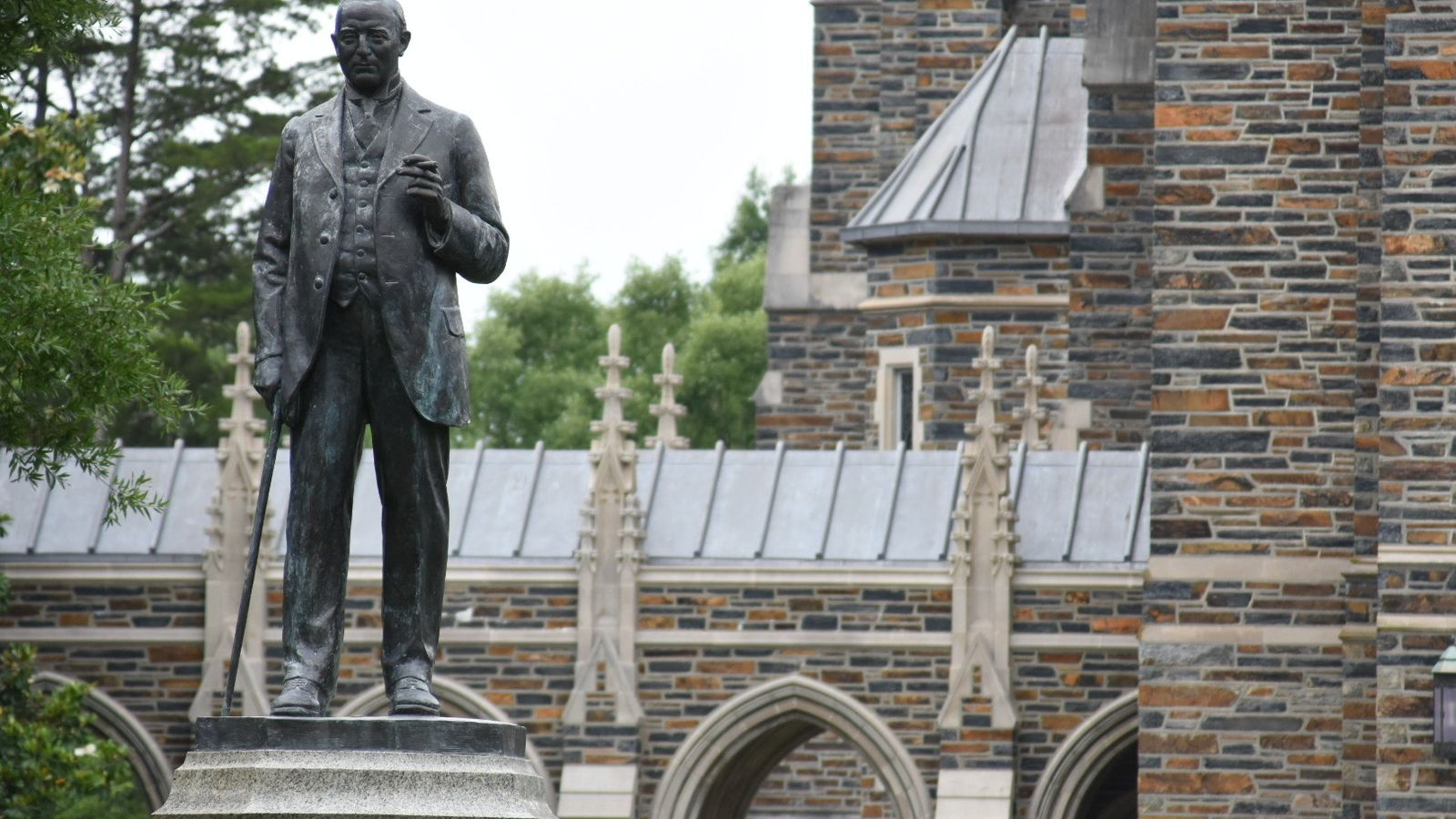
Federal investigations into Duke University come at time of financial uncertainty
How did your country report this? Share your view in the comments.
Diverging Reports Breakdown
Federal investigations into Duke University come at time of financial uncertainty
Two new investigations by the Department of Health and Human Services and the federal freezing of funds at Duke come at a time of increasing financial uncertainty. On Tuesday afternoon, CNN reported that the Trump administration was freezing $108 million in federal funding for Duke Health. On July 28, the US Department of Education announced a directed investigation into Duke and the Duke Law Journal for allegedly violating part of the Civil Rights Act. On the same day as the announcement of the investigation, that department and the University of North Carolina at Chapel Hill published a letter sent to Duke University outlining concerns about what they say are race preferences in hiring, admissions, and scholarship decisions. On August 5, the federal government is investigating whether Duke violated Title VI of the civil rights act. On that same day, the university wrote. “Our ability to maintain high quality, innovative care and attract top-tier clinicians and care teams’ – needs and allow them to keep their trusted.” On August 6, the U.S. Department of Justice announced a direct investigation into the Duke School of Medicine.
Leaders at Duke have pointed to frozen federal funding for months as a reason for the necessity of cost cutting. On Tuesday afternoon, CNN reported that the Trump administration was freezing $108 million in federal funding for Duke Health, encompassing Duke’s School of Medicine and the overall health research and health care system.
In March, Duke President Vincent Price announced a cost-reduction program.
Then, in April, Duke implemented a hiring freeze and paused capital spending.
The goal, according to Duke, was to save $350 million.
In June, Price released a video about voluntary retirement incentives, as groups called on the university to cut the pay of top earners and use participatory budgeting.
Then, in late July, Duke announced nearly 600 employees agreed to take buyouts through the Voluntary Separation Incentive Program.
The school says that number was not enough.
Involuntary staff reductions will start Aug. 5.
In the middle of cost cutting on the university side, Duke Health is embroiled in a battle with Aetna over rates.
Duke argues it can’t keep staffing at adequate levels in its hospitals and doctor’s offices if it doesn’t receive what it sees as fair compensation from its patients’ insurers.
“Our ability to maintain high quality, innovative care and attract top-tier clinicians and care teams depends on fair agreements with insurance companies,” the university wrote. “We are urging Aetna to prioritize our patients’ – their members’ – needs and allow them to keep their trusted Duke Health doctors in-network.”
Department of Education investigation
On July 28, the US Department of Education announced a directed investigation into Duke and the Duke Law Journal for allegedly violating part of the Civil Rights Act.
The department argues the issues are around an alleged packet circulated by the journal in 2024, which they say included an additional grading rubric, giving certain applicants the opportunity to get extra points for personal statements referencing race or ethnicity.
DOE alleges the journal only sent the packet into affinity groups and instructed applicants not to share it with other students.
The federal government is investigating whether Duke violated Title VI of the Civil Rights Act of 1964, writing in a press release, “certain applicants the opportunity to get extra points for personal statements referencing race or ethnicity.”
Department of Health and Human Services letter
On the same day as the announcement of the Department of Education’s investigation into the Duke Law Journal, that department and the Department of Health and Human Services published a letter sent to Duke University outlining concerns about what they say are race preferences in hiring, admissions, and scholarship decisions.
That letter asks Duke to create a “Merit and Civil Rights” Committee for a six-month period to work with the federal government on the alleged issues.
It says Duke needs to “review all policies and practices at Duke Health for the illegal use of race preferences, take immediate action to reform all of those that unlawfully take account of race or ethnicity to bestow benefits or advantages, and provide clear and verifiable assurances to the government that Duke’s new policies will be implemented faithfully going forward—including by making all necessary organizational, leadership, and personnel changes to ensure the necessary reforms will be durable.”
The higher education landscape in President Trump’s second term
Duke, and in particular its law journal, is not the first university to face this kind of investigation in 2025.
In April, DOE and DHHS announced a Title VI investigation into Harvard University and the Harvard Law Review, “amid reports of race-based discrimination permeating the operations of the journal,” according to a Department of Education press release.
The Department of Health and Human Services’ Office for Civil Rights says it has initiated seven other investigations during Trump’s second term.
The uncertainty around federal funding has also impacted public North Carolina universities.
In February, NC State announced a hiring freeze.
Last week, UNC System leaders discussed the lack of a new state budget, and the ongoing impact of uncertainty at the federal level.
“UNC-Chapel Hill in particular took very proactive steps to anticipate cuts in federal funding,” UNC System CFO Jennifer Haygood told the Board of Governors in that meeting. “They obviously are the institution that receives the most federal research dollars … but again, budgets are just plans. They will have to continuously be adjusted as updated forecasts indicate circumstances are changing.”
WRAL has reached out to Duke University for comment on the investigations, and we have not yet heard back.
